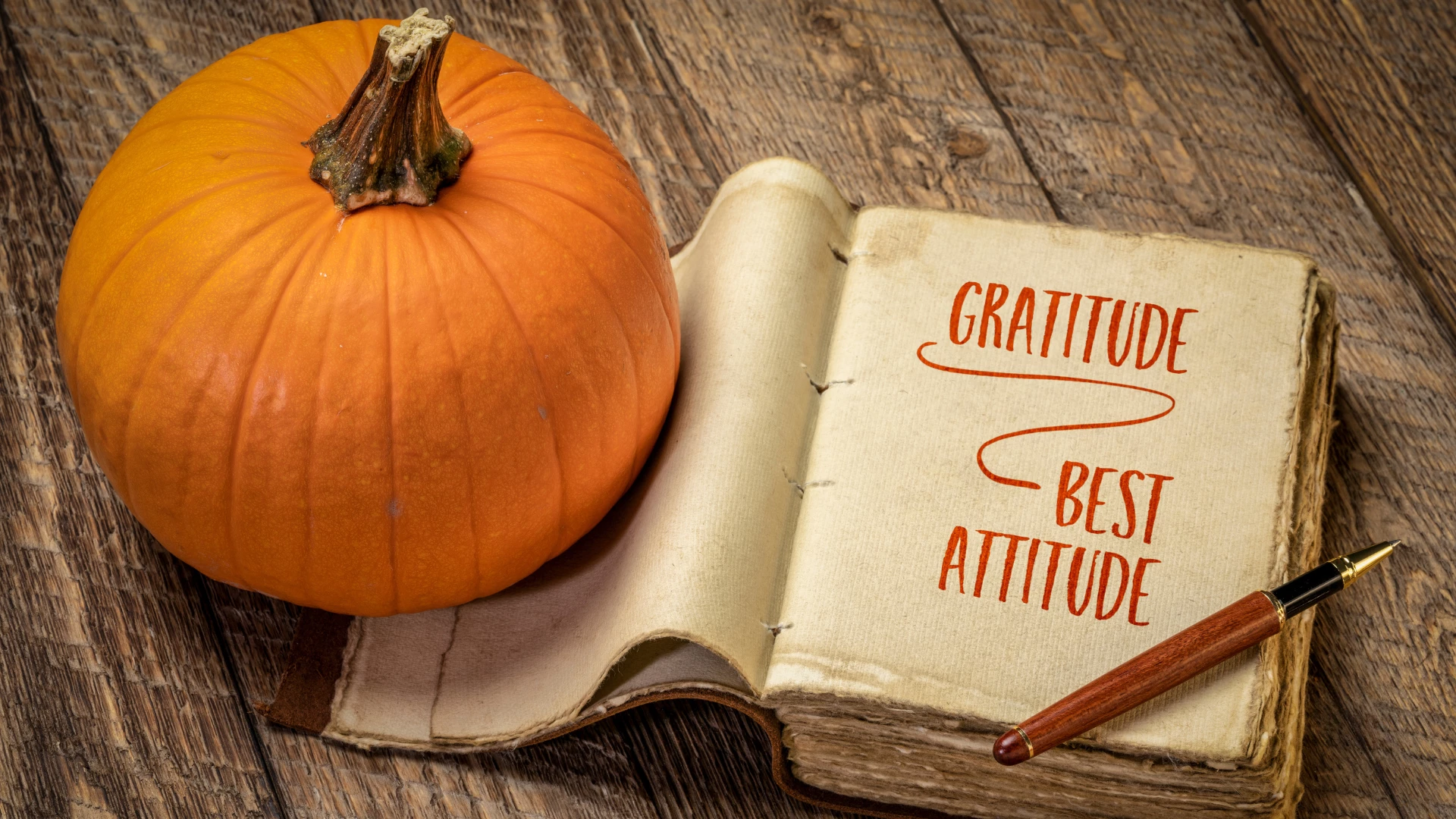5 Ways My Gratitude Journal Has Made Life More Fulfilling

Article At A Glance
Have you ever tried to keep a daily gratitude journal?
How long did you last?
I’ve tried to keep one many times in my life, and I have failed every time. The longest I’ve ever kept a journal was for a measly two weeks, in a Google Doc, with my college roommates as a way to stay in touch before I got bored and stopped.
For the last four months, though, I’ve managed to write in my journal every day. The trick has been to keep my updates short and sweet and to write less about my daily problems, which tends to make me feel hopeless and overwhelmed instead of relieved, and more about the things I love in everyday life.

I keep a gratitude journal, which isn’t a drag, like in my past diaries. On the contrary, it’s fun and makes me laugh because I limit myself to writing about only two types of things: moments of gratitude and triumph, or wins, as I call them. Occasionally, and I mean only when something bothers me so much that I can’t sleep, I rant.
Keeping the journal has changed my life, and it’s good value too! Doing it costs me less than five minutes and five dollars, depending on the brand of pen I buy. (I’m a sucker for Pentel Energel pens.)
If you’re looking for ways to integrate more gratitude into your life, I can definitely recommend keeping a gratitude journal. I’ve benefited from it in five specific ways, probably more. Here’s how:
1. Gratitude for Spending Time with Loved Ones More and Seeing our Challenging Moments Differently.

I recently realized that one of the impacts of losing my mom is a constant fear of losing other people I love. My mom died five years ago, and I feel anxious about eventually losing my dad all the time. It puts a lot of pressure on me to be fully present for every moment we spend together and to be the perfect daughter.
Here’s an example: My dad and I see a movie together, and I’ll periodically say to myself throughout the film, “This could be the last movie we see together. So you need to appreciate every moment!”
It’s a pressure that will always be part of me, but I write in my gratitude journal because I refuse to let it control my life.
Writing things like, “I’m grateful that I got to see a movie with Dad today” relaxes me. It’s like permitting myself to enjoy the movie because I know that I’m not letting the moment slip by.
My gratitude journal also helps me reframe the challenging moments I have with my dad. For example, I recently wrote, “My win today was setting aside my ego and communicating with Dad after we got into an argument over cleaning out old things.”
Now, instead of seeing confrontations as disasters to be avoided, I see them as opportunities to communicate and strengthen our relationship.
2. Gratitude for FindIng Rest, Even When I’m Upset.

When I was little, my mom predicted that I would become a sensitive person because I had a big forehead. I have yet to find scientific proof of the relationship between the two, but I’m definitely passionate and can take certain things very personally.
What bothers me most is when people don’t follow through on their work. “How can they not have told me that they’d send it to me late?” becomes, “It’s so easy! I would’ve done that for them,” which then becomes, “I don’t trust this person anymore.”
When I hop onto this train of thought, it’s hard to hop off, and it weighs me down as I struggle over how and when to express my frustration.
Writing in my journal daily helps me deal with the disappointments of daily life. It’s a safe space to rant about whatever is upsetting me. I experience a significant release of built-up anger and frustration on paper, and then I think critically about a solution to the problem.
Not too long ago, I furiously wrote about an incredibly frustrating day at work and, while writing, realized that I had been doing everything right; I just wasn’t receiving the support I needed. Moreover, I saw that it was my responsibility to ask for it. But, of course, I would never have come to this realization without journaling about it first.
When I finish ranting and raving and regain control over the situation, I say to myself, “Okay, are you ready to move on?” And I write down one thing to be grateful for, no matter how small. For example, “I’m grateful to my heart for pushing oxygen to the rest of my body,” or, “I’m grateful for that awesome chocolate chip cookie I ate for dessert.”
It’s my way of ending each day on a good note, and it prepares me for sleep.
3. I Wholeheartedly Accept Joy.

In her Netflix special, “The Call to Courage,” Brené Brown says, “ … joy is the most vulnerable of all human emotions. We are terrified to feel joy. We are so afraid that if we let ourselves feel joy, something will come along and rip it away from us … ” (00:45:49).
I love traveling. I’ve traveled since I was two and have been to over 20 countries. Every time I go somewhere, I’m so overjoyed that I fear something terrible happening. I might worry about the plane crashing or an accident happening at home while I’m away, which I hope I never have to experience.
Another example is when I brave unnecessary hardship and call it the price I have to pay for something else, which is often completely unrelated.
Brown’s research says that we wait for the other shoe to drop to protect ourselves from joy, which is one of the most vulnerable emotions, along with love and belonging.
Writing in my gratitude journal enables me to feel joy without the sense of foreboding. If something good happens to me, I no longer see it as a foreshadowing event of a disaster. It is another item to be added to my journal list of wins or moments of gratitude, which I can (and should) enjoy.
4. I Am Deepening My Commitment to Certain People and Activities.
My gratitude journal helps me cope with the uncontrollable outcomes I face in everyday life. Still, it also helps me make healthy decisions about the activities and people I engage with.
For example, after keeping my gratitude journal for several months, I was often grateful for my yoga practice and public speaking and leadership club, Boston Toastmasters.
As a result, I decided to increase my commitment to both activities. Instead of practicing yoga weekly, I now practice daily. I also recently ran for (and won!) an officer position at my Toastmasters club.
Certain family members and close friends also regularly appear in my gratitude journal. It reminds me to maintain our relationship and actively update them about my life, even if they live in another state—or country!
I like having a record of interactions, activities, and people that bring joy or wins. It brings some essential parts of my life into focus.
5. I Am More Satisfied with Myself and my Accomplishments.

Historically, I’ve been my own harshest critic. Some days, when I refuse to believe I’ve done enough, I spread myself too thin and completely exhaust myself.
I was recently awarded a scholarship to go to journalism school. But everyone I shared the news with said something like, “Oh, journalists don’t make much money, you know.” Gee, thanks!
I started doubting myself, thinking, “How will I care for myself? I can’t believe I decided to go for journalism. Who am I to think I can write, anyway? There’s no way I’ll be able to make a living on it.”
By chance, I saw the win I’d recorded the day I received my acceptance letter: “Today, I won a scholarship to go to journalism school.”
I may not make a stable living on my writing, but I won a lot of money for the one piece I submitted in my application. That’s a big win! And thank goodness I had my gratitude journal to remind me of that. Otherwise, I would’ve continued to question my decision, even though I know this program is exactly what I want to do.
My wins remind me that I’ve done enough, and in most cases, more than enough. If I see proof that I’ve done at least one thing that day to achieve my goals, then I can relax. Recording wins transformed me from being my toughest critic into one of my biggest cheerleaders.
How a Gratitude Journal Changes Lives
I’ve written 142 entries, and I’m still going strong! In this short period, gratitude journaling has impacted my life in so many ways.
It’s challenged me to cherish every moment with my family, good or bad. It’s helped me find rest and practice acceptance, especially on difficult days. It’s also become my way to methodically focus and deepen my commitment to certain areas of my life. But, most importantly, it has reminded me to celebrate all of my wins, no matter how others see them. It’s changed my life, and it could change yours too.
Also, read...
Want to Feel Better? Just Breathe – The Power of Bhramari Pranayama (Humming Bee’s Breath)
The Health Benefits of Multi-Day and Intermittent Fasting Part 2
Fasting for Health: What Are the Benefits?
Related courses
Breath as Medicine: Yogic Breathing for Vital Aging
Yoga and Myofascial Release: Releasing Chronic Tension with the Bodymind Ballwork Method

Kristen Chin is a writer who also loves to give speeches, perform improv, and act. She is a proud and active member of her local Toastmasters club, which is part of the international public speaking and leadership organization Toastmasters International. Visit her blog, kristenharriet.com, for inspiration on facing fears and courageous living!




